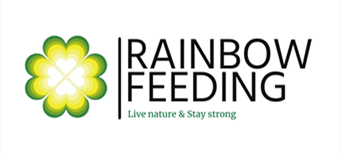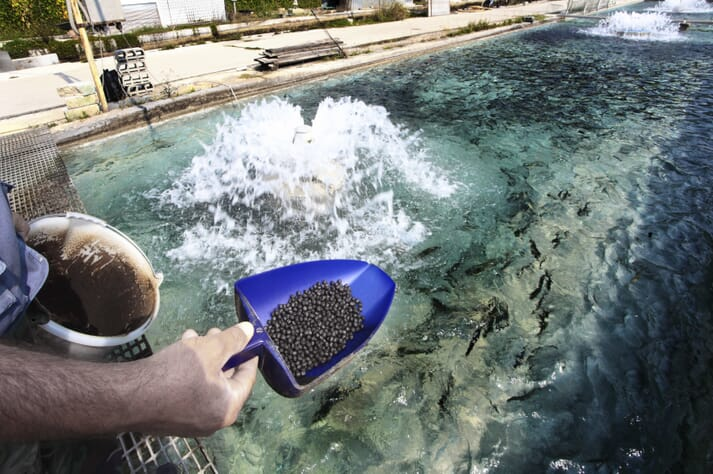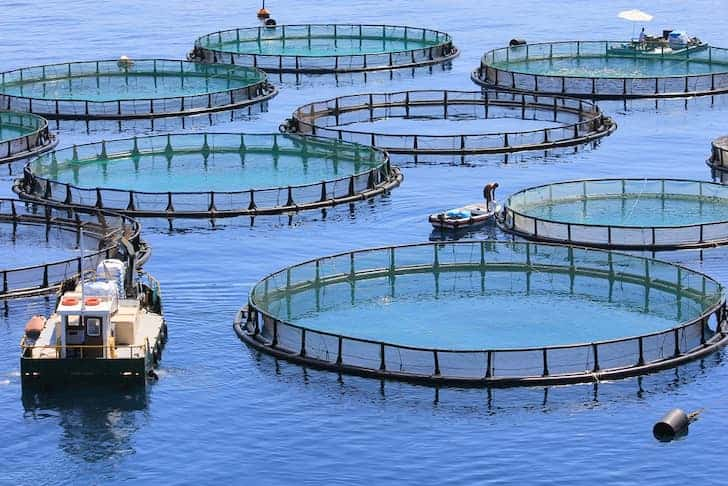Herbal Remedies For Farmed Fish
Farmed fish often suffer from a variety of health issues, ranging from parasites to nutritional deficiencies. Fortunately, there are some natural remedies that can help to reduce the negative effects of these ailments and improve the overall health of farmed fish. Herbal medicines are used to treat and prevent infections and various fish diseases control, including basil, thyme, garlic oil and so on that can be used for non-antibiotic, growth promoter and immune stimulant. These herbs have antimicrobial properties that help fight infections and prevent them from spreading. They are safe as they are less toxic than fish antibiotics drugs and will have no adverse effect on the ecosystem.
For example, herbs like basil (Ocimum basilicum) and thyme (Thymus vulgaris) are known for their ability to kill parasites and their eggs, soothe & regenerate the digestive system, and yucca schidigera can improve immune function in the body. Garlic extract(Allium sativum) and ginger (Zingiber officinale) are also effective anti-parasite agents. Besides, other plant extracts such as onion (Allium cepa), bitter chaparro (Castela tortuosa) and papaya (Carica papaya) have been evaluated for their potential use against monogenean ectoparasites in aquaculture. However, them is important to note that these herbs are not suitable for all fish species and should be used sparingly.
Benefits of Herbal Remedies For Farmed Fish
Growth Promoter
The bacterial resistance developed due to the use of synthetic antibiotics is a serious problem that has been widely debated and studied over time. It is also a major risk factor for human health, and countries are implementing policies to minimise their usage. A number of plant powders and extracts act as a growth promoter and boost anti-microbial activity. They are also immune stimulants and enhance the quality of fish meat by enhancing its protein nutrient value. According to experts, dietary supplementation of garlic, aloe vera, ashwagandha (Withania somnifera), amla (Indian gooseberry) and ginger powder is very beneficial. These herbs can be mixed with regular fish feed to increase the yield and improve the quality of meat.
Yucca Schidigera is a another natural ingredient that can be used to reduce ammonia levels in farmed fish. This plant saponins extract has been proven to prevent the accumulation of ammonia, and thus promote better water quality and improved fish health. It also helps reduce inflammation, enhance feed utilization and improve the overall growth rate of farmed fish.
Immune Stimulant
Immunostimulants are a broad category of biological and synthetic compounds that enhance the non-specific defense mechanisms of animals, thus imparting generalized protection. They are widely used to overcome the immunosuppressive effects of stress and infectious agents that interfere with or damage the functioning of cells of the immune system. The yeast cell wall extract has been used in fisheries and aquaculture for many years. It contains a high concentration of mannan oligo-saccharides (MOS) and b-D-glucans. The expression profiles of 120 trout genes were examined in spleen, liver, gills and skin after YRF injection at 6 h and 24 h post injection (hpi) and significantly increased the expression of IL-1b1, IL-1b2, IL-6 and TNFa1 at 24 h.
Anti-Fungal Agent
Fungi represent a major cause of fish disease in freshwater ecosystems. Fungal spores are easily spread and can contaminate the water causing serious infection in fish, gills, skin and fins. There are several drugs used for the treatment of fungal infections, however, they often have side effects and are associated with development of drug resistance. Thus, developing alternative formulations that can boost anti-microbial activity is essential. Garlic oil is known for its anti-bacterial properties and can help fight off infections in farmed fish. The antibacterial properties of garlic oil can penetrate deep into the skin of the fish, providing protection from bacterial diseases. It also helps reduce stress levels in farmed fish, which can further support their immune system.
A study was carried out on a set of indigenous herbs from Bukoba rural district, Tanzania to test their anti-fungal activity against Candida albicans, Cryptococcus neoformans and Aspergillus niger. The results showed that extracts of Capparis erythrocarpos, Cussonia arborea, Dracaena steudneri, Lannea schimperi and Rauvolfia vomitoria showed good antifungal activity against all three fungi.
Parasiteic Agent
Several studies have shown that a variety of herbal extracts can act as natural parasitic agents in fish. The use of these indigenous herbs in aquaculture may be a good strategy to reduce the parasitic burdens of fish farms. Moreover, these plants also boost anti-microbial activity. One of the most studied medicinal herbs is nettle (Urticaceae). Nettle leaves contain antibacterial compounds such as kaempferol 3-O-a-L-(2”,3”-di-Z-p-coumaroyl)rhamnoside that is very active against MRSA and St. flexneri strains, as well as against Salmonella Typhimurium and E. coli in vitro. They have the potential to prevent parasites, decrease their growth rate and reduce their reproduction. Consequently, they can be used as alternatives to antibiotics for controlling parasites in aquaculture.




